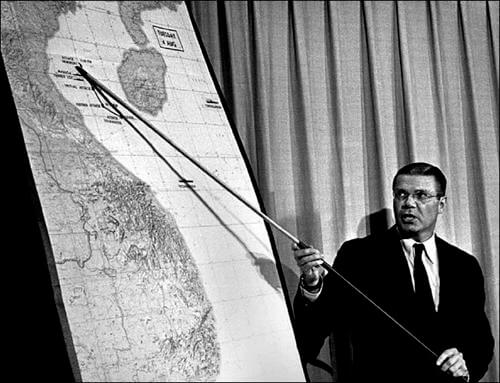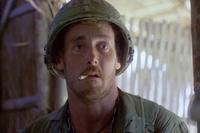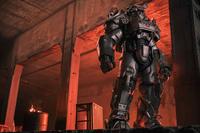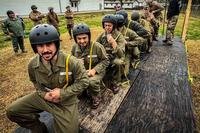%embed1%
“I know what many of you are thinking. You’re thinking, ‘This man is duplicitous. You’re thinking that he has held things close to his chest. You’re thinking that he did not respond fully to the desires and wishes of the American people. And I want to tell you 'you're wrong’.” -- Robert S. McNamara in The Fog of War
I'm ashamed to say I'd never heard of The Fog of War until a few days ago. Though it's been out for nearly ten years, I was surprised to find that none of my friends had heard of it, much less seen it. That seemed a good enough reason to pass it along here.
The Fog of War won an Academy Award for Best Documentary of 2003. It's not quite a biography, not quite entirely historical fiction, it's the story of Robert S. McNamara. Based on biographical and historical material (much of it, according to the tone of their press release, previously unheeded), The Fog of War features taped telephone conversations from the Oval Office of the White House between Johnson and McNamara.
The film purports to discuss the relationship between McNamara and General LeMay (whom the press release describes as "infamous") and the firebombing of Japanese cities in 1945 prior to the dropping of Fat Man and Little Boy. It will no doubt create a lot of conversation among all of you watching it (much of it profane) when it raises McNamara's alleged questioning of the necessity of 'war by any means', wherein he wonders of the morality of killing one hundred thousand Japanese civilians in a night vs. losing hundreds of thousands of American troops in an invasion of Japan...though whether he was actually questioning the necessity seems to me to be largely a matter of interpretation on the viewer's part.
"We saw Vietnam as an element of the Cold War...not what they saw it as...was civil war. We were wrong."
Interestingly, the media release advises that the telephone recordings contain McNamara expressing to President Kennedy a need for a timetable to remove US military advisers from Vietnam, and later (after Kennedy's assassination) him "urging [President] Johnson to put the breaks on the bombing of North Vietnam..."
Like it or not, it's contentious, but it's worth watching if you have any interest in military history at all.
Check out the movie's website, which is interesting if a bit aggravating to navigate.
You can also watch it as 11 Lessons of War, a nicely compiled series of videos on YouTube. If you've got STARZ On Demand or the Comcast streaming service on your mobile app, you can watch it that way until the end of October. Otherwise, you'll have to rent a DVD off Netflix or buy one from Amazon.





